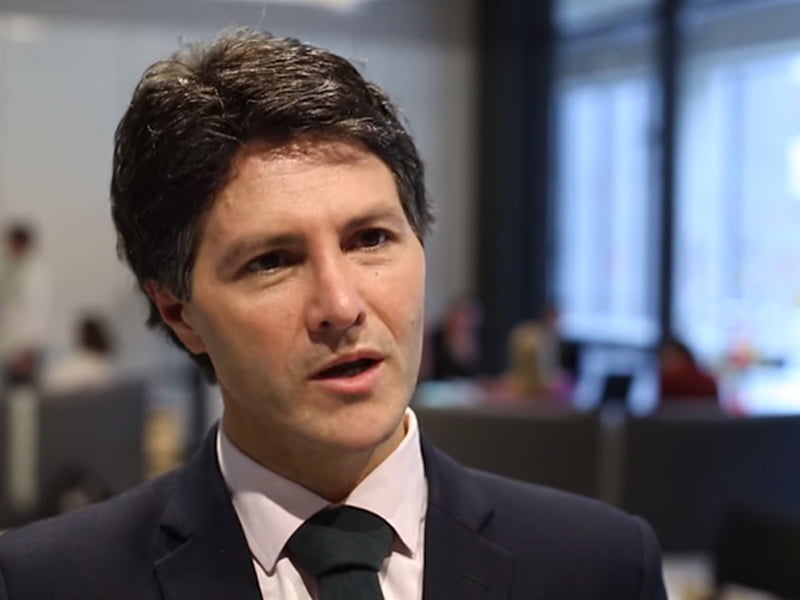As Stuart Robert sits down in the coming days to design a strategic imitation of the Service NSW model for digital service delivery, there is an important flaw he must avoid.
That is the opaque and heavy over-reliance on a teeny handful of multinational cloud providers that has exposed the NSW Government – and NSW citizens – to substantial new risk.
As newly-appointed Minister for Government Services, Mr Robert takes over the portfolio formerly known as Human Services, now re-badged in Scott Morrison’s post-election shuffle as Services Australia.

Mr Roberts marching orders from the Prime Minister was to re-engineer federal government services along the clean lines of those that have been created in NSW.
It is certainly true that New South Wales has driven its service delivery improvement agenda harder and faster than any other jurisdiction, and the retail front-end of that effort has delivered improvements in “customer” satisfaction.
What is less clear is the cost of that satisfaction, and the real and implied risk of government services that are increasingly – and substantially – owned by Salesforce, Microsoft and AWS, and dictates the foreign controlled terms-of-service they impose.
There is a sovereignty issue here that does not get talked about outside of government. The delivery of large swathes of government services are now reliant on service terms that are decided entirely outside of government, and outside of Australia.
Just like Google Play stopped letting me listen to my favourite music when I had to cancel a lost credit card and didn’t tell them – that is, I broke the terms of service agreement – the cloud-based SaaS giants have the same incredible powers over the delivery of citizen services.
This would never happen, you say? Perhaps not, but the risk is real. It is hard to believe such powerful leverage would not manifest itself in some way that is not in the best interests of the citizens. Getting squeezed on price – of course – would be the least of government concerns.
What Stuart Robert will need to decide is whether or not that level of risk is acceptable in the delivery of social services such as pensions and welfare payments to our most vulnerable citizens.
He will need to make a judgement call on very real sovereignty issues related not just to where data resides, but also the conditions under which this data is processed.
The NSW government is well aware of these issues, although how they will be managed is far from clear. It does not want to talk about these things publicly.
The first-up response from NSW was to obscure from view its reliance on these companies, making a joke of the “radical transparency” nonsense the government carried on about in relation to digital innovation.
It has also signed strategic partnerships and whole-of-government sourcing arrangements with companies like Salesforce and Microsoft that make it difficult to find out which departments and agencies are contracted to the companies, or the value of those contracts.
The NSW government will not say which departments or agencies use Salesforce software, for example, or even to disclose a back-of-envelope estimation of how much the state spends with the company. It simply will not say.
For its part, Salesforce is far less coy. It acknowledges that the NSW government is it’s largest customer in the entire Asia-Pacific region. It is bigger than all of the corporations of Japan, China, Korea – all of the region’s giant organisations that have an actual salesforce.
NSW Customer Service minister Victor Dominello provided Salesforce employees in Sydney with a private briefing on Monday in a session moderated by Salesfore in-house ‘futurist’ Peter Schwartz, who was flown in from the US for the occasion.
Outside observers were excluded from the briefing – this was deemed “inappropriate” by Salesforce – which makes you wonder what a minister would say to a room full of Salesforce executives that he couldn’t say outside of that room to the rest of us. Journalists who had been invited to the event, were suddenly uninvited.
It was a terrible look for a minister who is already under the pump over leaks of private data from his office used for nefarious election campaign purposes.
Stuart Robert will need to judge for himself the sovereignty risks posed by the unprecedented power of the multinational tech suppliers, and the degree to which government must retain a level of sovereign capability that mitigates that risk.
He will also need to decide what to do with the federal IT procurement regime. It was less than 18 months ago that the then-assistant minister for digital transformation Angus Taylor released a review of the technology procurement system.
The review sought to reduce Commonwealth reliance on large system integrators. It was meant to break-up the giant contracts that put too much reliance on multinationals.
It was also aimed at giving local companies better access to government contracts, and to use procurement to help strengthen the Australian industry.
These ICT reforms had at least an eye on building Australia’s sovereign capability, and reducing the over-reliance on largely US-based multinationals.
These reforms sank without a trace, never to be spoken of again, under previous minister Michael Keenan.
It is now up to Stuart Robert to resurface concerns related to ICT procurement and Australia’s sovereign capability.
And Service NSW, which has shown almost no interest in developing the local technology sector, is no model for the federal government to follow.
Do you know more? Contact James Riley via Email.

